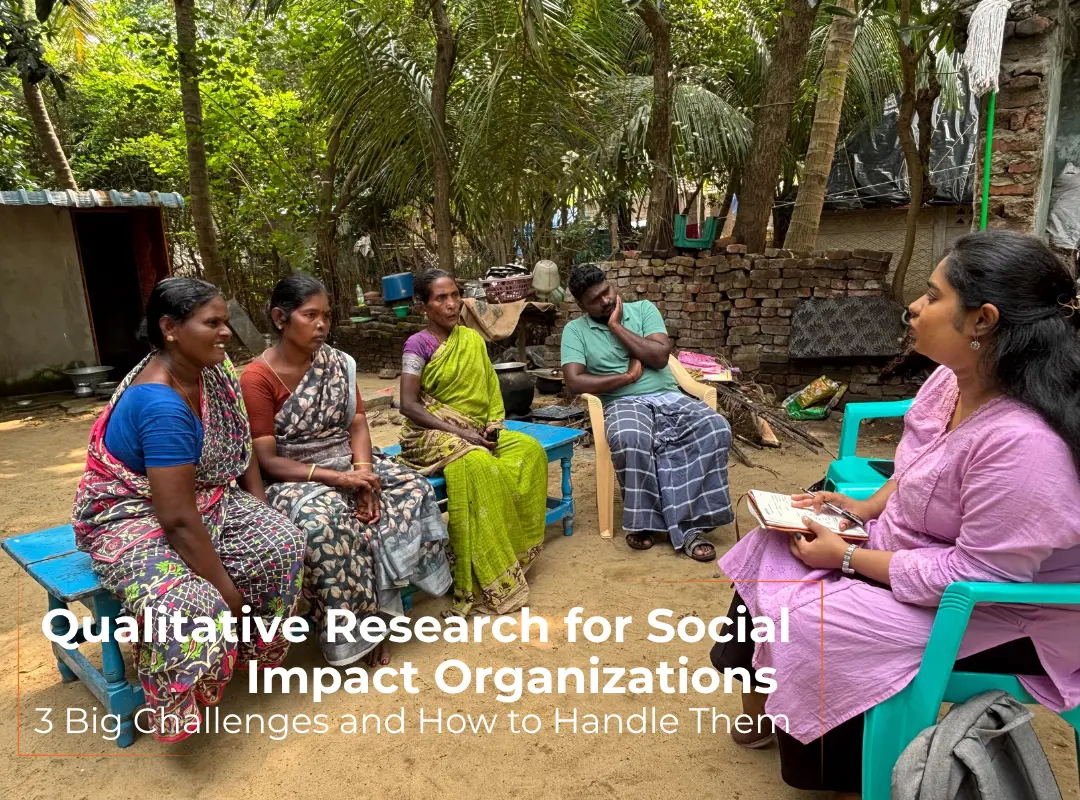Organisations today operate in a climate where stakeholders demand accountability and measurable outcomes. A well-defined impact strategy is the foundation that connects vision with action. It provides structure to community initiatives, aligns them with business goals, and creates evidence of value delivered.
Global research shows that more than 80% of consumers are willing to pay more for sustainably produced or sourced goods (PwC, 2024). At the same time, about 85% of chief investment officers say ESG is an important factor in their investment decisions (McKinsey & Company, 2022). These figures reflect why organisations cannot rely on ad-hoc initiatives. They need structured social impact strategy consulting to create credibility, strengthen trust, and demonstrate value with clarity. In this blog, we understand the 5 key signs your organization needs an impact strategy.
Why Impact Strategy Is Important for Purpose-Driven Organizations

A purpose-driven impact strategy goes beyond traditional philanthropy. It creates systems that tie organizational values with measurable social impact goals. Without a clear framework, companies risk fragmented programs that neither achieve depth nor deliver accountability.
The importance of impact strategy lies in its ability to:
- Align business with community outcomes: Projects support both corporate growth and social progress.
- Strengthen accountability: Structured monitoring & evaluation provides evidence of impact that funders and stakeholders expect.
- Support long-term planning: A clear framework allows programs to scale sustainably.
- Build credibility: Transparent reporting improves reputation among consumers, partners, and investors.
- Enable learning and adaptation: Regular review identifies what works and what needs adjustment.
For organisations that wish to lead in corporate social impact, strategy is not optional. It is the anchor that connects intent with measurable action to create value for both business and society.
Read Next: Social Impact Consulting: A Complete Guide
5 Important Signs Your Organization Needs an Impact Strategy

Before developing a structured framework, it helps to identify the warning signals. These signs highlight when an organisation should invest in a social impact strategy or backed by expert impact strategy consulting.
1. Fragmented or Short-Term Projects
When initiatives are scattered across departments without a central framework, outcomes remain unclear. A structured impact strategy creates direction, integrates program designs into the larger organizational mission, and provides measurable impact goals. Without this clarity, projects risk becoming isolated efforts that do not build long-term credibility or support sustainable results.
2. Lack of Measurable Outcomes
If your organisation cannot show evidence of results, stakeholders lose confidence. Clear social impact strategy consulting creates systems to track outcomes, analyse progress, and communicate achievements in impact evaluations. Without monitoring, it becomes difficult to prove value delivered or justify investments. This makes programs less effective in both the short and long term.
3. Weak Stakeholder Engagement
A strong, purpose-driven strategy requires active involvement from employees, communities, and partners. If these groups are not engaged, projects may not meet real needs. Signs of weak engagement include low participation, limited feedback, or conflicts of interest. An impact strategy brings stakeholders into the process and builds stronger ownership.
4. Missed Opportunities for Business Alignment
Many organisations run community programs that do not connect to their core mission or business strengths. This lack of alignment reduces impact and weakens the return on resources. With a well-designed social impact strategy, initiatives can support both community outcomes and corporate social impact objectives, which will make them more sustainable and scalable.
5. Reactive Instead of Strategic Decisions
When projects are launched only in response to external pressure, they often lack focus and consistency. This reactive approach limits both reach and credibility. Developing an impact strategy shifts organisations toward proactive planning, where programs are guided by defined goals, structured monitoring, and a roadmap for long-term value creation.
Read Next: How to Measure Social Impact in 2025: A Step-by-Step Guide
How to Get Started With an Impact Strategy

Developing an impact strategy requires careful planning and structured execution. Organisations that treat it as part of their core approach to growth can build measurable, sustainable value. Here are the key steps to begin:
- Assess Current Programs: Map existing initiatives and identify strengths and gaps.
- Define Social Impact Goals: Set clear outcomes aligned with business and community needs.
- Engage Stakeholders Early: Involve employees, communities, and partners in planning and feedback.
- Develop Measurable Frameworks: Use impact strategy consulting to design systems for tracking results.
- Integrate With Business Strategy: Align programs with organizational mission and long-term objectives.
- Communicate Results Clearly: Share progress with reports that build trust and credibility.
With these steps, organisations can shift from fragmented projects to a purpose-driven strategy that delivers consistent value.
Read Next: How to Choose the Right Social Impact Consulting Firm in India
Final Thoughts
A structured impact strategy is no longer a choice but a necessity. It defines how organisations connect their mission with measurable outcomes, respond to stakeholder expectations, and create sustainable value. For those still asking “what is social impact strategy”, the answer lies in moving from scattered projects to a clear framework guided by evidence and accountability.
At 4th Wheel, we specialise in social impact strategy consulting that supports nonprofits, corporates, and CSR teams in building strategies that last. From defining social impact goals to creating systems for evaluation and reporting, our expertise helps organisations strengthen their role as purpose-driven leaders.
Ready to take the next step? Contact The 4th Wheel today to design an impact strategy that drives real change.




